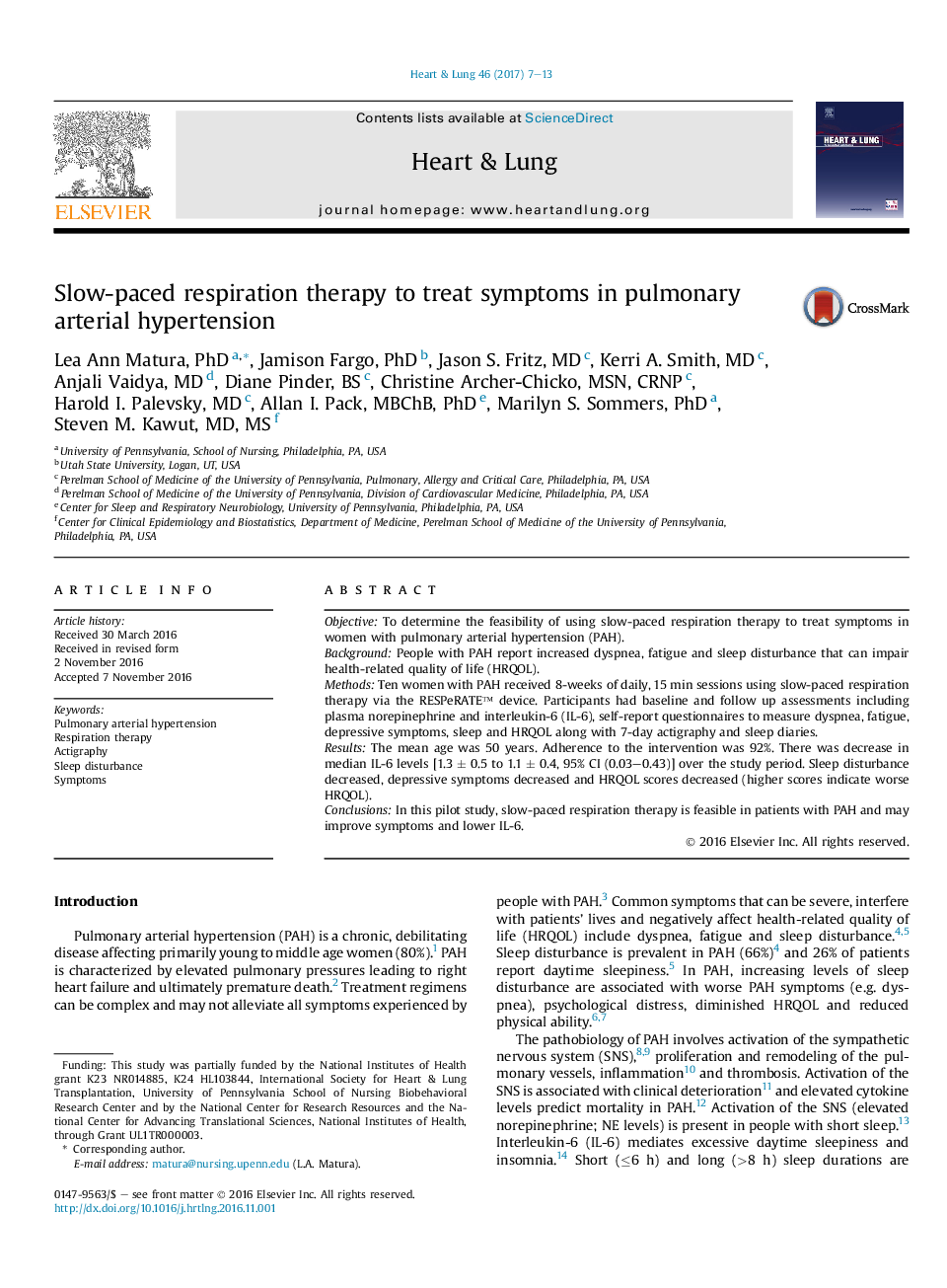| Article ID | Journal | Published Year | Pages | File Type |
|---|---|---|---|---|
| 5568097 | Heart & Lung: The Journal of Acute and Critical Care | 2017 | 7 Pages |
â¢A pilot study of 10 women there was 100% retention and high adherence to the 8-week slow-paced respiration therapy intervention.â¢Slow-paced respiration therapy was associated with reduced plasma IL-6 levels and no serious adverse events occurred.â¢Preliminary results suggest decreased wake after sleep onset, increased sleep efficiency and increased total sleep time.â¢Depressive symptoms decreased and HRQOL scores decreased (higher HRQOL scores indicate worse HRQOL.
ObjectiveTo determine the feasibility of using slow-paced respiration therapy to treat symptoms in women with pulmonary arterial hypertension (PAH).BackgroundPeople with PAH report increased dyspnea, fatigue and sleep disturbance that can impair health-related quality of life (HRQOL).MethodsTen women with PAH received 8-weeks of daily, 15 min sessions using slow-paced respiration therapy via the RESPeRATE⢠device. Participants had baseline and follow up assessments including plasma norepinephrine and interleukin-6 (IL-6), self-report questionnaires to measure dyspnea, fatigue, depressive symptoms, sleep and HRQOL along with 7-day actigraphy and sleep diaries.ResultsThe mean age was 50 years. Adherence to the intervention was 92%. There was decrease in median IL-6 levels [1.3 ± 0.5 to 1.1 ± 0.4, 95% CI (0.03-0.43)] over the study period. Sleep disturbance decreased, depressive symptoms decreased and HRQOL scores decreased (higher scores indicate worse HRQOL).ConclusionsIn this pilot study, slow-paced respiration therapy is feasible in patients with PAH and may improve symptoms and lower IL-6.
